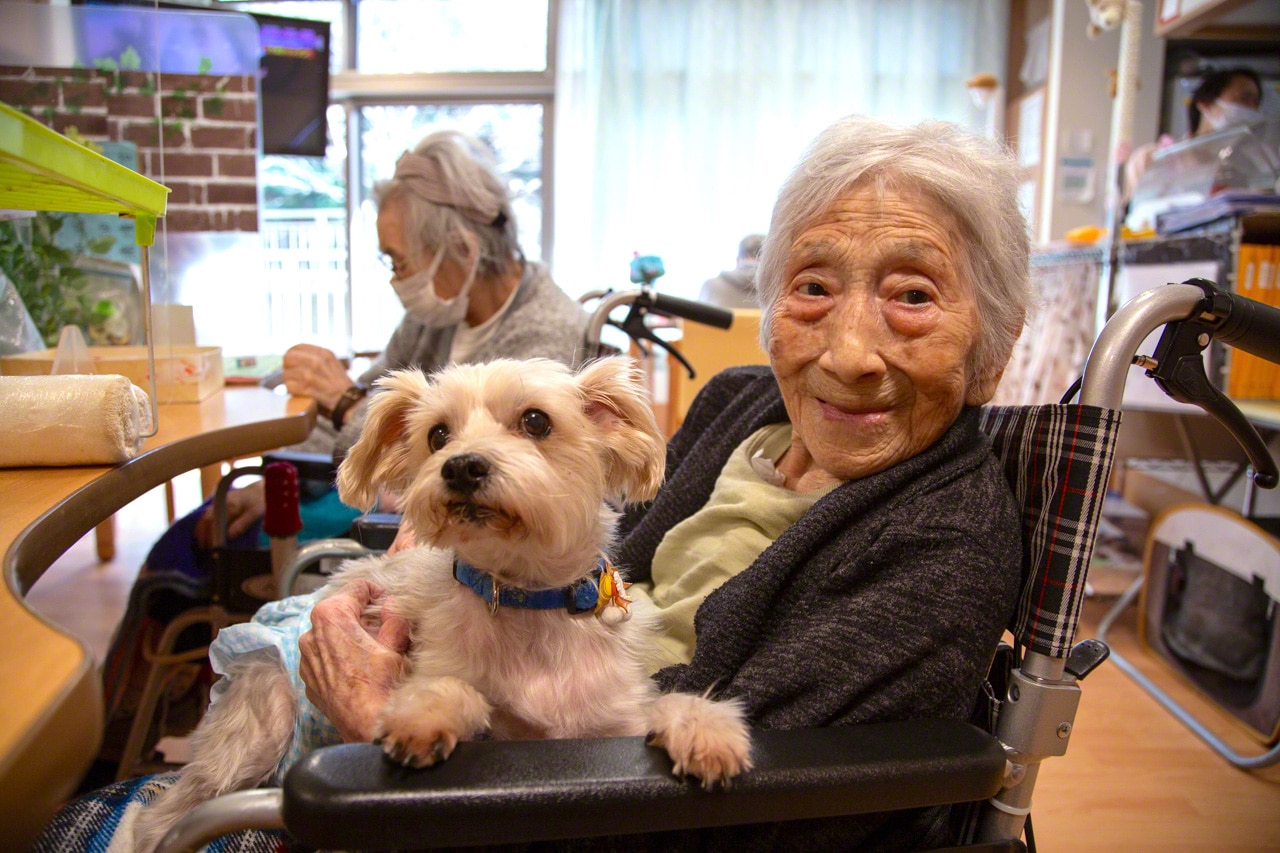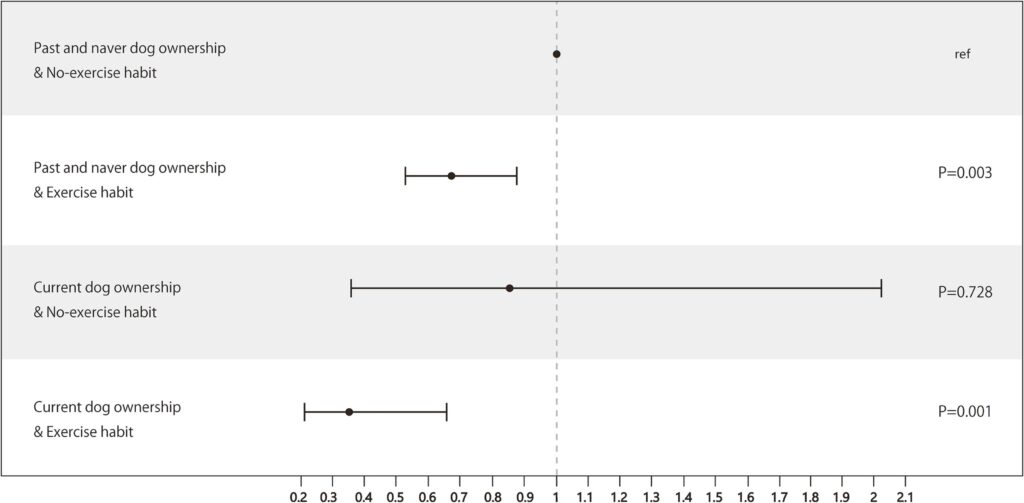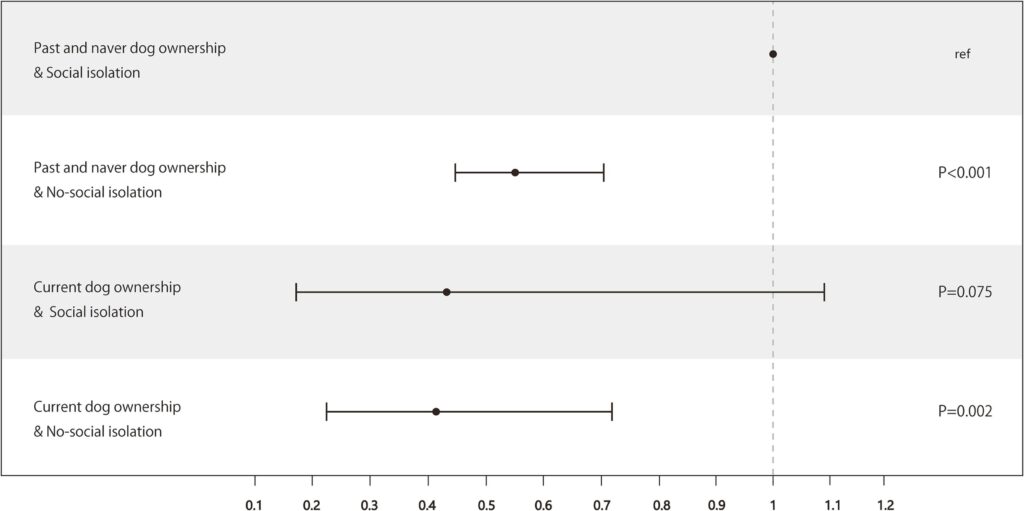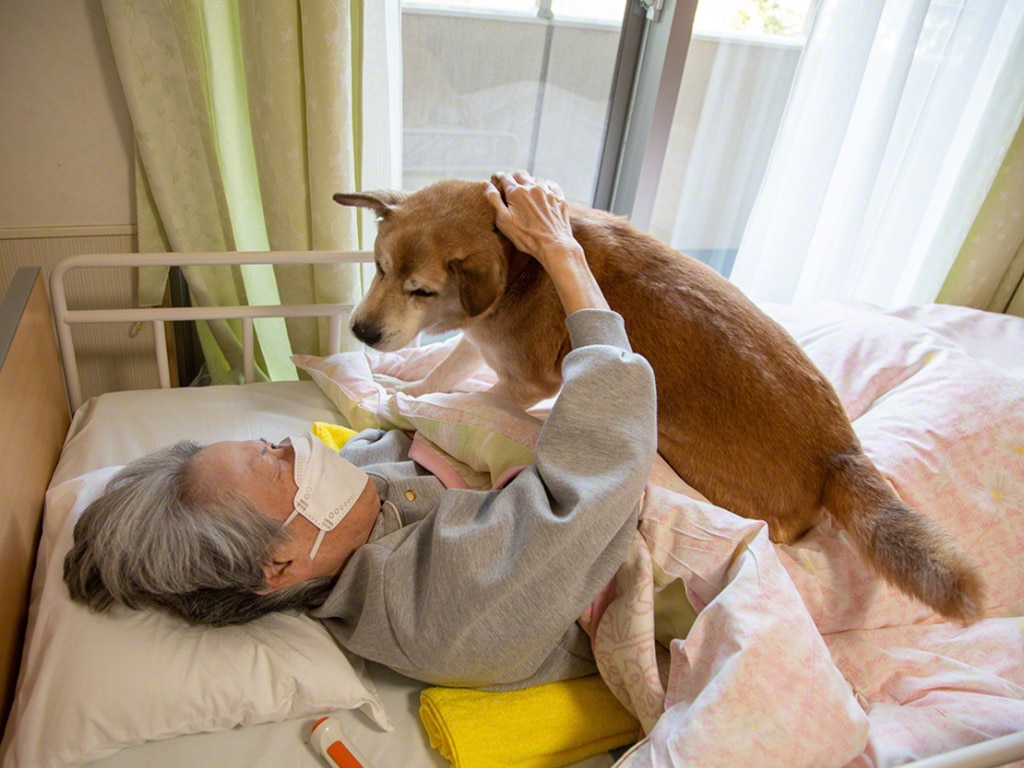Owning a dog can prevent dementia in older adults
A study reveals that owning a dog reduces the risk of dementia in older adults. Current dog owners are 40% less likely to develop dementia compared to those who never owned one. exercise and social interaction linked to dog care are key factors.

A study conducted in Japan with over 11,000 older adults found that owning a dog can significantly reduce the risk of developing dementia. Current dog owners were 40% less likely to suffer from dementia compared to those who never owned a dog or had one in the past. The research, part of the “ota genki” senior project, highlights the potential benefits of dog ownership for cognitive health in aging populations.

Odds ratios of dog ownership and habitual exercise with incident dementia. An inverse probability of treatment weighted logistic regression model with the propensity score was implemented. X-axis showed odds ratios.

Odds ratios of dog ownership and social isolation with incident dementia. An inverse probability of treatment weighted logistic regression model with the propensity score was implemented. X-axis showed odds ratios.
The research suggests that physical activity, such as walking a dog, and the social interaction involved in dog care are key factors in this protective effect. Dog owners who maintain a regular exercise routine and avoid social isolation have an even lower risk of dementia.
In contrast, cat ownership did not show a significant effect on reducing dementia risk. this is likely because caring for cats does not involve the same level of physical activity or social interaction as dog ownership.
The study highlights the importance of promoting responsible dog ownership and related activities as a strategy to prevent dementia in older adults. The findings are particularly relevant as dementia is a leading cause of disability and mortality in aging populations worldwide.
Key findings:
- Lower dementia risk: current dog owners had a 40% lower risk of developing disabling dementia compared to non-dog owners.
- Exercise matters: dog owners with a regular exercise habit had a 63% lower risk of dementia.
- Social interaction: dog owners who were not socially isolated had a 59% lower risk of dementia.
- No effect from cats: cat ownership did not show a significant association with reduced dementia risk.
Mechanisms behind the benefits:
- Physical activity: walking a dog provides moderate-intensity exercise, which is known to improve cardiovascular health and cognitive function.
- Social engagement: dog owners often interact with other people during walks, reducing feelings of loneliness and isolation.
- Mental stimulation: caring for a dog involves routines and responsibilities that can keep the mind active.

Study strengths and limitations:
The study’s strengths include its large sample size, use of propensity score matching to account for various factors, and reliance on Japan’s long-term care insurance system for dementia diagnosis. However, the study has some limitations, such as a relatively short follow-up period (4 years) and the lack of baseline cognitive function data. Additionally, the findings may not be generalizable to other countries with different cultural attitudes toward pet ownership.
Implications for dementia prevention:
The findings of this study have important implications for dementia prevention strategies. promoting responsible dog ownership and related activities, such as regular exercise and social interaction, could be a valuable approach to reducing dementia risk in older adults.
- exercise programs: communities could develop programs that encourage older adults to adopt dogs and participate in regular walking groups. these programs would not only promote physical activity but also provide opportunities for social interaction.
- social support: providing support for older adults to care for their dogs, such as access to veterinary services and dog-walking assistance, could help them maintain their pets and reap the associated health benefits.
- public awareness: raising awareness about the potential cognitive benefits of dog ownership could encourage more older adults to consider adopting a dog.
Conclusion:
This study provides strong evidence that owning a dog, particularly when combined with regular exercise and social interaction, can help reduce the risk of dementia in older adults. These findings suggest that promoting dog ownership and related activities could be a valuable strategy for dementia prevention in aging populations.